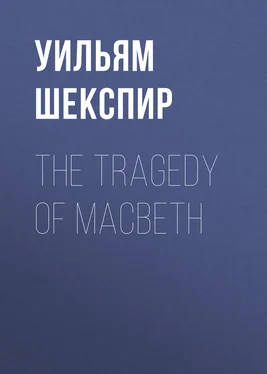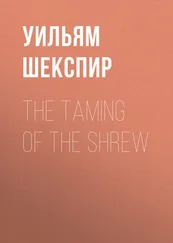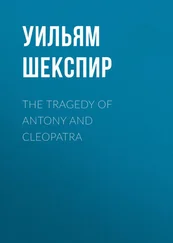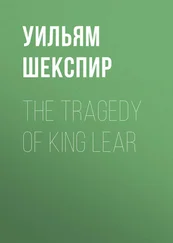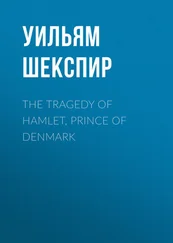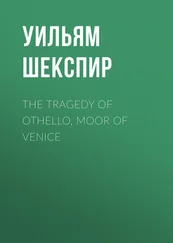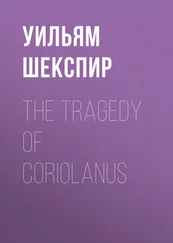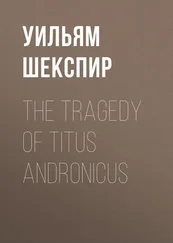Уильям Шекспир - The Tragedy of Macbeth
Здесь есть возможность читать онлайн «Уильям Шекспир - The Tragedy of Macbeth» — ознакомительный отрывок электронной книги совершенно бесплатно, а после прочтения отрывка купить полную версию. В некоторых случаях можно слушать аудио, скачать через торрент в формате fb2 и присутствует краткое содержание. Жанр: Европейская старинная литература, Драматургия, foreign_dramaturgy, на английском языке. Описание произведения, (предисловие) а так же отзывы посетителей доступны на портале библиотеки ЛибКат.
- Название:The Tragedy of Macbeth
- Автор:
- Жанр:
- Год:неизвестен
- ISBN:нет данных
- Рейтинг книги:4 / 5. Голосов: 1
-
Избранное:Добавить в избранное
- Отзывы:
-
Ваша оценка:
- 80
- 1
- 2
- 3
- 4
- 5
The Tragedy of Macbeth: краткое содержание, описание и аннотация
Предлагаем к чтению аннотацию, описание, краткое содержание или предисловие (зависит от того, что написал сам автор книги «The Tragedy of Macbeth»). Если вы не нашли необходимую информацию о книге — напишите в комментариях, мы постараемся отыскать её.
The Tragedy of Macbeth — читать онлайн ознакомительный отрывок
Ниже представлен текст книги, разбитый по страницам. Система сохранения места последней прочитанной страницы, позволяет с удобством читать онлайн бесплатно книгу «The Tragedy of Macbeth», без необходимости каждый раз заново искать на чём Вы остановились. Поставьте закладку, и сможете в любой момент перейти на страницу, на которой закончили чтение.
Интервал:
Закладка:
Speak then to me, who neither beg nor fear
Your favors nor your hate.
FIRST WITCH. Hail!
SECOND WITCH. Hail!
THIRD WITCH. Hail!
FIRST WITCH. Lesser than Macbeth, and greater.
SECOND WITCH. Not so happy, yet much happier.
THIRD WITCH. Thou shalt get kings, though thou be none.
So all hail, Macbeth and Banquo!
FIRST WITCH. Banquo and Macbeth, all hail!
MACBETH. Stay, you imperfect speakers, tell me more.
By Sinel's death I know I am Thane of Glamis;
But how of Cawdor? The Thane of Cawdor lives,
A prosperous gentleman; and to be King
Stands not within the prospect of belief,
No more than to be Cawdor. Say from whence
You owe this strange intelligence, or why
Upon this blasted heath you stop our way
With such prophetic greeting? Speak, I charge you.
Witches vanish.
BANQUO. The earth hath bubbles as the water has,
And these are of them. Whither are they vanish'd?
MACBETH. Into the air, and what seem'd corporal melted
As breath into the wind. Would they had stay'd!
BANQUO. Were such things here as we do speak about?
Or have we eaten on the insane root
That takes the reason prisoner?
MACBETH. Your children shall be kings.
BANQUO. You shall be King.
MACBETH. And Thane of Cawdor too. Went it not so?
BANQUO. To the selfsame tune and words. Who's here?
Enter Ross and Angus.
ROSS. The King hath happily received, Macbeth,
The news of thy success; and when he reads
Thy personal venture in the rebels' fight,
His wonders and his praises do contend
Which should be thine or his. Silenced with that,
In viewing o'er the rest o' the selfsame day,
He finds thee in the stout Norweyan ranks,
Nothing afeard of what thyself didst make,
Strange images of death. As thick as hail
Came post with post, and every one did bear
Thy praises in his kingdom's great defense,
And pour'd them down before him.
ANGUS. We are sent
To give thee, from our royal master, thanks;
Only to herald thee into his sight,
Not pay thee.
ROSS. And for an earnest of a greater honor,
He bade me, from him, call thee Thane of Cawdor.
In which addition, hail, most worthy Thane,
For it is thine.
BANQUO. What, can the devil speak true?
MACBETH. The Thane of Cawdor lives. Why do you dress me
In borrow'd robes?
ANGUS. Who was the Thane lives yet,
But under heavy judgement bears that life
Which he deserves to lose. Whether he was combined
With those of Norway, or did line the rebel
With hidden help and vantage, or that with both
He labor'd in his country's wreck, I know not;
But treasons capital, confess'd and proved,
Have overthrown him.
MACBETH. [Aside.] Glamis, and Thane of Cawdor!
The greatest is behind. [To Ross and Angus] Thanks for your
pains.
[Aside to Banquo] Do you not hope your children shall be
kings,
When those that gave the Thane of Cawdor to me
Promised no less to them?
BANQUO. [Aside to Macbeth.] That, trusted home,
Might yet enkindle you unto the crown,
Besides the Thane of Cawdor. But 'tis strange;
And oftentimes, to win us to our harm,
The instruments of darkness tell us truths,
Win us with honest trifles, to betray's
In deepest consequence-
Cousins, a word, I pray you.
MACBETH. [Aside.] Two truths are told,
As happy prologues to the swelling act
Of the imperial theme-I thank you, gentlemen.
[Aside.] This supernatural soliciting
Cannot be ill, cannot be good. If ill,
Why hath it given me earnest of success,
Commencing in a truth? I am Thane of Cawdor.
If good, why do I yield to that suggestion
Whose horrid image doth unfix my hair
And make my seated heart knock at my ribs,
Against the use of nature? Present fears
Are less than horrible imaginings:
My thought, whose murther yet is but fantastical,
Shakes so my single state of man that function
Is smother'd in surmise, and nothing is
But what is not.
BANQUO. Look, how our partner's rapt.
MACBETH. [Aside.] If chance will have me King, why, chance may
crown me
Without my stir.
BANQUO. New honors come upon him,
Like our strange garments, cleave not to their mould
But with the aid of use.
MACBETH. [Aside.] Come what come may,
Time and the hour runs through the roughest day.
BANQUO. Worthy Macbeth, we stay upon your leisure.
MACBETH. Give me your favor; my dull brain was wrought
With things forgotten. Kind gentlemen, your pains
Are register'd where every day I turn
The leaf to read them. Let us toward the King.
Think upon what hath chanced, and at more time,
The interim having weigh'd it, let us speak
Our free hearts each to other.
BANQUO. Very gladly.
MACBETH. Till then, enough. Come, friends. Exeunt.
SCENE IV. Forres. The palace
Flourish. Enter Duncan, Malcolm, Donalbain, Lennox, and Attendants.
DUNCAN. Is execution done on Cawdor? Are not
Those in commission yet return'd?
MALCOLM. My liege,
They are not yet come back. But I have spoke
With one that saw him die, who did report
That very frankly he confess'd his treasons,
Implored your Highness' pardon, and set forth
A deep repentance. Nothing in his life
Became him like the leaving it; he died
As one that had been studied in his death,
To throw away the dearest thing he owed
As 'twere a careless trifle.
DUNCAN. There's no art
To find the mind's construction in the face:
He was a gentleman on whom I built
An absolute trust.
Enter Macbeth, Banquo, Ross, and Angus.
O worthiest cousin!
The sin of my ingratitude even now
Was heavy on me. Thou art so far before,
That swiftest wing of recompense is slow
To overtake thee. Would thou hadst less deserved,
That the proportion both of thanks and payment
Might have been mine! Only I have left to say,
More is thy due than more than all can pay.
MACBETH. The service and the loyalty lowe,
In doing it, pays itself. Your Highness' part
Is to receive our duties, and our duties
Are to your throne and state, children and servants,
Which do but what they should, by doing everything
Safe toward your love and honor.
DUNCAN. Welcome hither.
I have begun to plant thee, and will labor
To make thee full of growing. Noble Banquo,
That hast no less deserved, nor must be known
No less to have done so; let me infold thee
And hold thee to my heart.
BANQUO. There if I grow,
The harvest is your own.
DUNCAN. My plenteous joys,
Wanton in fullness, seek to hide themselves
In drops of sorrow. Sons, kinsmen, thanes,
And you whose places are the nearest, know
We will establish our estate upon
Our eldest, Malcolm, whom we name hereafter
The Prince of Cumberland; which honor must
Not unaccompanied invest him only,
But signs of nobleness, like stars, shall shine
On all deservers. From hence to Inverness,
And bind us further to you.
MACBETH. The rest is labor, which is not used for you.
I'll be myself the harbinger, and make joyful
The hearing of my wife with your approach;
So humbly take my leave.
DUNCAN. My worthy Cawdor!
MACBETH. [Aside.] The Prince of Cumberland! That is a step
On which I must fall down, or else o'erleap,
For in my way it lies. Stars, hide your fires;
Let not light see my black and deep desires.
The eye wink at the hand; yet let that be
Which the eye fears, when it is done, to see. Exit.
DUNCAN. True, worthy Banquo! He is full so valiant,
And in his commendations I am fed;
It is a banquet to me. Let's after him,
Whose care is gone before to bid us welcome.
It is a peerless kinsman. Flourish. Exeunt.
SCENE V. Inverness. Macbeth's castle
Интервал:
Закладка:
Похожие книги на «The Tragedy of Macbeth»
Представляем Вашему вниманию похожие книги на «The Tragedy of Macbeth» списком для выбора. Мы отобрали схожую по названию и смыслу литературу в надежде предоставить читателям больше вариантов отыскать новые, интересные, ещё непрочитанные произведения.
Обсуждение, отзывы о книге «The Tragedy of Macbeth» и просто собственные мнения читателей. Оставьте ваши комментарии, напишите, что Вы думаете о произведении, его смысле или главных героях. Укажите что конкретно понравилось, а что нет, и почему Вы так считаете.
